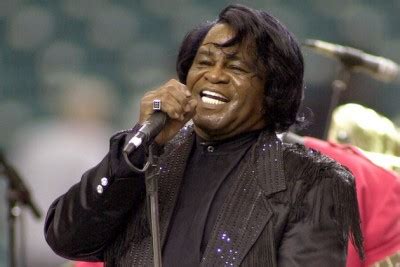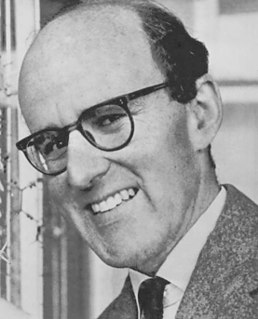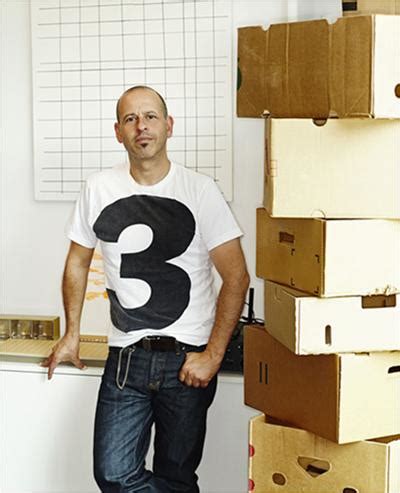A Quote by James A.C. Brown
There exists a "fear of freedom" of selfhood, which makes people want to submerge themselves in the mass and confession is one of the obvious means by which they can do so, for thereby they lose those traits which cause them to feel separate.
Related Quotes
If in this supreme test, in face of which the braggart falls silent and every heroic gesture is paralyzed, a man walks straight up to the cause of his fear and is not deterred from doing that which is good -- which ultimately means for the sake of God, and therefore not from ambition or from fear of being taken for a coward -- this man, and he alone, is truly brave.
The house of representatives ... can make no law, which will not have its full operation on themselves and their friends, as well as the great mass of society. This has always been deemed one of the strongest bonds by which human policy can connect the rulers and the people together. It creates between them that communion of interest, and sympathy of sentiments, of which few governments have furnished examples; but without which every government degenerates into tyranny.
To all of which is added a selection from the elementary schools of subjects of the most promising genius, whose parents are too poor to give them further education, to be carried at the public expense through the college and university. The object is to bring into action that mass of talents which lies buried in poverty in every country, for want of the means of development, and thus give activity to a mass of mind, which, in proportion to our population, shall be double or treble of what it is in most countries.
The main condition for the achievement of love is the overcoming of one's narcissism. The narcissistic orientation is one in which one experiences as real only that which exists within oneself, while the phenomena in the outside world have no reality in themselves, but are experienced only from the viewpoint of their being useful or dangerous to one. The opposite pole to narcissism is objectivity; it is the faculty to see other people and things as they are, objectively, and to be able to separate this objective picture from a picture which is formed by one's desires and fears.
Scientists like myself merely use their gifts to show up that which already exists, and we look small compared to the artists who create works of beauty out of themselves. If a good fairy came and offered me back my youth, asking me which gifts I would rather have, those to make visible a thing which exists but which no man has ever seen before, or the genius needed to create, in a style of architecture never imagined before, the great Town Hall in which we are dining tonight, I might be tempted to choose the latter.
The preservation of a free government requires not merely that the metes and bounds which separate each department of power be invariably maintained; but more especially that neither of them be suffered to overleap the great Barrier which defends the rights of the people. The Rulers who are guilty of such an encroachment, exceed the commission from which they derive their authority and are Tyrants. The people who submit to it are governed by laws made neither by themselves nor by an authority derived from them, and are slaves.
How can they be delivered from the life of self, who are not willing to abandon all their possessions? How can they believe themselves despoiled of all, who possess the greatest treasure under heaven? Do not oblige me to name it, but judge, if you are enlightened; there is one of them which is less than the other, which is lost before it, but which those who must lose everything have the greatest trouble in parting with.
It is this language of values which I hope to bring to my books. . . . I want to bring values to those who have not been valued, and I want to etch those values in terms of the ideal. Young people need ideals which identify them, and their lives, as central . . . guideposts which tell them what they can be, should be, and indeed are.
Among the basic freedoms to which men aspire that their lives might be full and uncramped, freedom from fear stands out as both a means and an end. A people who would build a nation in which strong, democratic institutions are firmly established as a guarantee against state-induced power must first learn to liberate their own minds from apathy and fear.
It must be remembered that in those great days I was considered to be an "integrationist" - this was never, quite, my own idea of myself - and Malcolm was considered to be a "racist in reverse." This formulation, in terms of power - and power is the arena in which racism is acted out - means absolutely nothing: it may even be described as a cowardly formulation. The powerless, by definition, can never be "racists," for they can never make the world pay for what they feel or fear except by the suicidal endeavor which makes them fanatics or revolutionaries, or both.































